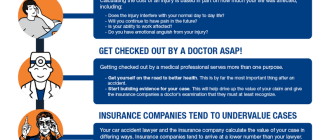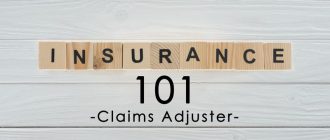
Tackling Lowball Offers: A Guide to Negotiating with Auto Insurance Adjusters.
When it comes to dealing with auto insurance adjusters, negotiating fair compensation for your damages can be a challenging task. With their knowledge and experience, insurance adjusters are skilled in the art of trying to settle claims for as little as possible. However, armed with the right tools and strategies, you can successfully tackle lowball offers and ensure you receive the compensation you deserve.
In this comprehensive guide, we will walk you through the process of negotiating with insurance adjusters, offering tips and techniques to help you navigate this complex landscape. From understanding the tactics they use to undervalue your claim to learning how to effectively counter their lowball offers, this guide will empower you to take control of the negotiation process.
Insurance adjusters may employ various tactics to undermine the value of your claim, such as downplaying the severity of your injuries, disputing liability, or using the services of biased experts to support their position. Don’t be intimidated by their tactics. With our step-by-step guidance, you will be better equipped to respond to their strategies and present your case with confidence.
Remember, insurance adjusters are not on your side. Their primary goal is to protect the interests of the insurance company, which often means offering you the lowest settlement possible. By understanding their tactics and knowing how to counter them, you can level the playing field and negotiate a fair settlement that adequately covers your losses.
Tackling Lowball Offers:
In the world of auto insurance, negotiating with adjusters for a fair settlement can be a daunting task. One common strategy used by insurance companies is to present lowball offers, which are settlements far below what the injured party deserves. However, with the right guide and approach, it is possible to effectively tackle these lowball offers.
First and foremost, it is important to understand what exactly a lowball offer is. When an insurance adjuster presents a lowball offer, they are essentially trying to minimize the financial liability of their company. Often, these offers do not accurately reflect the true value of the claim, and it’s crucial not to be swayed by the initial figure presented.
To effectively tackle lowball offers, preparation is key. Before engaging in negotiations, it is essential to gather all relevant documentation and evidence to support your claim. This may include medical records, repair estimates, and any other relevant documentation that demonstrates the extent of the damages and injuries suffered.
When negotiating with adjusters, it is important to remain calm, professional, and firm in your position. Communicate clearly and concisely, emphasizing the facts and evidence supporting your claim. It is also helpful to have a clear understanding of the true value of your claim, based on the extent of damages, medical expenses, and potential loss of income.
Keep in mind that adjusters are trained negotiators who are skilled at using tactics to minimize settlements. They may try to downplay the severity of the accident or injuries, or argue that your claim is not supported by sufficient evidence. It is important to anticipate these tactics and be prepared to counter them with strong evidence and persuasive arguments.
Throughout the negotiation process, it is important not to rush or settle for less than what you deserve. Be persistent and don’t be afraid to push back against lowball offers. Consider seeking the assistance of a personal injury attorney who specializes in negotiating with insurance companies, as they can provide valuable guidance and support in achieving a fair settlement.
In conclusion, tackling lowball offers from auto insurance adjusters requires a comprehensive understanding of the negotiation process and a strong, assertive approach. By being prepared, staying firm, and advocating for your rights, you can increase your chances of achieving a fair settlement that accurately reflects the true value of your claim.
A Guide to Negotiating with Auto Insurance Adjusters
When it comes to dealing with auto insurance adjusters, understanding how to negotiate can make all the difference. Insurance adjusters are the individuals who assess claims and determine the amount of compensation that will be offered. However, they often start with what is known as a “lowball” offer, which is an initial offer that is significantly lower than what the claim may be worth. This is done in an attempt to save the insurance company money.
To tackle these lowball offers and ensure that you receive fair compensation, it’s essential to be prepared and know your rights. Here is a guide to negotiating with auto insurance adjusters:
- Document your damages: Before negotiating with an insurance adjuster, thoroughly document all damages to your vehicle. Take clear and detailed photographs of the exterior and interior of your car, as well as any personal belongings that were damaged. This evidence will help support your claim and give you leverage during negotiations.
- Research the value of your vehicle: Do your research to determine the current market value of your vehicle. Websites and resources that provide car valuations can be useful in determining a fair settlement amount. Having this information will allow you to counter the adjuster’s lowball offer with evidence-based reasoning.
- Be confident and assertive: When negotiating with an insurance adjuster, it’s important to be confident and assertive. Clearly express your expectations and the reasons why you believe you deserve a higher settlement amount. Present your evidence and arguments calmly and respectfully, but be firm in advocating for your rights as a policyholder.
- Consider hiring a professional: If you find the negotiation process overwhelming or if your claim involves significant damages, you may want to consider hiring a professional, such as a public adjuster or an attorney. These professionals have experience in negotiating with insurance adjusters and can help ensure that you receive the compensation you deserve.
- Continue bargaining: Negotiations with insurance adjusters can often be an ongoing process. If the adjuster’s initial offer is unsatisfactory, don’t be afraid to continue bargaining. Counter with a higher amount based on your research and evidence, and be willing to provide further documentation or support for your claim if necessary. Remember, the goal is to reach a fair settlement that adequately compensates you for your losses.
By following this guide, you can navigate the negotiation process with auto insurance adjusters more effectively and increase your chances of receiving a fair settlement. Remember to stay informed, assert your rights, and be persistent in fighting for the compensation you deserve.
Understanding the Claims Process:
When it comes to dealing with auto insurance adjusters, it’s important to understand the claims process. This guide will help policyholders navigate through the often complicated world of insurance claims and provide them with the tools they need to negotiate fair settlements.
Insurance adjusters, also known as claims adjusters, are the professionals responsible for evaluating and settling claims made by policyholders. They work for the insurance companies and are tasked with investigating accidents, determining liability, and assessing the damages.
As a policyholder, it’s essential to know your rights and responsibilities during the claims process. This knowledge will empower you to advocate for yourself and ensure that you receive a fair and adequate settlement.
One crucial aspect of negotiating with insurance adjusters is being aware of the tactic of lowball offers. A lowball offer is when the insurance company proposes a settlement that is significantly lower than the actual value of the claim. Insurers may use this strategy to save money or pressure policyholders into accepting less than they deserve.
To tackle lowball offers, policyholders should gather and document evidence of the accident and damages. This evidence can include photographs, police reports, medical records, and repair estimates. The more documentation you have, the stronger your negotiating position will be.
Another key step in the claims process is to understand the language and terminology used by insurance adjusters. Familiarize yourself with common terms such as liability, deductible, and cap, as well as your policy’s coverage limits. This understanding will help you navigate conversations with adjusters and ensure you know your rights and options.
It’s also important to keep all communication with insurance adjusters in writing. This creates a clear record of the negotiations and helps prevent misunderstandings or misinterpretations. Additionally, it’s essential to review any settlement offers carefully and consult with a qualified attorney if needed.
By understanding the claims process and equipping yourself with knowledge and evidence, you can effectively negotiate with insurance adjusters and increase your chances of receiving a fair settlement. Remember to stay persistent, remain calm, and be prepared to advocate for yourself throughout the process.
Key Steps to Follow
When negotiating with auto insurance adjusters on lowball offers, it’s important to follow these key steps:
- Review the offer: Carefully examine the insurance adjuster’s initial offer to determine if it is fair and reasonable.
- Gather evidence: Collect all relevant evidence, such as photographs, medical records, and repair estimates, to support your counteroffer.
- Prepare a counteroffer: Use the evidence you’ve gathered to build a persuasive case and present a counteroffer that reflects the true value of your claim.
- Present your case: Communicate your counteroffer in a clear and concise manner, highlighting the evidence that supports it.
- Negotiate in good faith: Engage in a respectful and professional negotiation process with the insurance adjuster, focusing on finding common ground.
- Consider hiring a professional: If the negotiation reaches an impasse or if you don’t feel comfortable handling it yourself, consider hiring a lawyer or public adjuster to advocate on your behalf.
- Document everything: Keep a record of all communication with the insurance adjuster, including emails, phone calls, and letters, as well as any agreements or changes made during the negotiation process.
- Stay patient and persistent: Negotiating with insurance adjusters can take time, so it’s important to remain patient and persistent in pursuing a fair settlement.
- Know your rights: Familiarize yourself with your rights as a policyholder and understand what you’re entitled to under your insurance policy.
By following these key steps, you can increase your chances of successfully tackling lowball offers and negotiating a fair settlement with auto insurance adjusters.
Documenting the Damage:
When tackling lowball offers from auto insurance adjusters, it’s essential to have proper documentation of the damage to ensure a fair negotiation. Here’s a guide to help you document the damage effectively:
- Photographs: Take clear and detailed photos of the damage from multiple angles. Ensure that the photos clearly show the extent of the damage and any relevant details.
- Videos: In addition to photographs, consider taking videos of the damaged areas. Videos can provide a comprehensive view of the damage and may capture details that photos might miss.
- Written Description: Write a detailed description of the damage, including any visible and potential hidden damage. Be precise and provide as much information as possible.
- Witness Statements: If there were witnesses to the accident, ask them to provide written statements describing what they saw. Their testimonies can strengthen your case and support your claims.
- Repair Estimates: Obtain multiple repair estimates from reputable repair shops. These estimates can help establish the true cost of the damage and counter any lowball offers from the insurance adjusters.
Remember, documentation is crucial when negotiating with auto insurance adjusters. It provides evidence of the damage and ensures that you have a solid foundation for your negotiations. By following this guide and being thorough in your documentation, you can increase your chances of reaching a fair settlement.
How to Gather Evidence
When dealing with a lowball offer from an auto insurance adjuster, it’s essential to gather as much evidence as possible to support your claim. This evidence will significantly strengthen your negotiating position and help you get the settlement you deserve. Here are some steps to effectively gather evidence:
| 1. Document the Accident Scene | Take photos of the accident scene from different angles, capturing any damages to your vehicle, skid marks on the road, and any other relevant details. These photos will serve as visual evidence of the impact and extent of the damage. |
| 2. Obtain Accident Reports | Make sure to obtain a copy of the police report or any official accident reports. These reports contain vital information about the accident, including statements from involved parties and any witnesses. They can also provide valuable insights into liability and fault assessment. |
| 3. Gather Medical Records | If you’ve suffered any injuries as a result of the accident, gather all relevant medical records, including hospital bills, doctor’s reports, and receipts for medications and treatments. These records will support your claim for compensation related to medical expenses. |
| 4. Maintain a Journal | Keep a detailed journal documenting the impact of the accident on your everyday life. Note down any physical or emotional pain, the inability to perform certain tasks, missed workdays, and any other relevant information. This journal will serve as a powerful tool to illustrate the true extent of your damages. |
| 5. Secure Witness Statements | If there were any witnesses to the accident, try to obtain their contact information and statements about what they saw. These witness statements can provide additional credibility to your version of events and help counter any claims made by the insurance adjuster. |
| 6. Preserve Vehicle Repair Documentation | If you had to repair your vehicle following the accident, keep all receipts and invoices related to the repairs. These documents will serve as evidence of the cost of repairs and any decrease in the value of your vehicle due to the accident. |
By diligently gathering and organizing this evidence, you’ll be better equipped to challenge a lowball offer and negotiate a fair settlement with the insurance adjuster. Remember, evidence is key in establishing the true extent of your damages and ensuring you’re properly compensated.
Evaluating the Initial Offer:
When dealing with auto insurance adjusters, it is important to have a guide to help you navigate through the process of negotiating and evaluating their initial offers. These offers are often lowball offers, meaning they are lower than what you believe your claim is worth. Evaluating the initial offer is crucial to determining whether you should accept it or continue negotiating for a fairer settlement.
First, it is important to thoroughly review the initial offer provided by the insurance adjuster. Take note of the amount being offered and compare it to your estimated damages and losses. Keep in mind that the adjuster’s goal is to settle the claim for as little as possible, so their initial offer is likely to be lower than what you believe you deserve.
Consider the factors that the adjuster may have taken into account when determining the offer, such as the extent of the damages, the age and condition of the vehicle, and any preexisting damage. It is important to gather evidence and documentation to support the value of your claim. This can include repair estimates, medical bills, and records of any other expenses incurred as a result of the accident.
If the initial offer is significantly lower than what you believe is fair, don’t be afraid to negotiate. Insurance adjusters often expect some back-and-forth in the negotiation process. It can be helpful to have a clear understanding of the value of your claim and be prepared to present evidence to support your position.
During negotiations, be polite but firm. Clearly articulate your reasons for requesting a higher settlement and provide any additional evidence or documentation that supports your claim. Highlight any relevant laws or regulations that may support your position.
Remember, negotiating with insurance adjusters can be a time-consuming process, but don’t settle for less than what you believe is fair. Be patient, persistent, and prepared to back up your argument with evidence. By evaluating the initial offer and effectively negotiating, you can increase your chances of reaching a fair settlement with your auto insurance company.
Factors to Consider
When negotiating with auto insurance adjusters, there are several factors to consider that can help you effectively tackle lowball offers. These factors include:
| 1. Offers: | Take note of the initial offer made by the insurance adjuster. This will serve as a starting point for your negotiations. |
| 2. Insurance: | Research and understand the insurance company’s policies and procedures. This will give you a better understanding of how to approach the negotiation. |
| 3. Negotiating: | Develop a solid negotiation strategy. This includes gathering evidence to support your claim, understanding the value of your damages, and being prepared to counter the adjuster’s arguments. |
| 4. Lowball: | Beware of lowball offers. Insurance adjusters may try to settle your claim for less than it’s worth. Be prepared to stand your ground and negotiate for a fair settlement. |
| 5. Adjusters: | Consider the experience and tactics of the insurance adjuster. Understanding their perspective can give you insight into how to effectively negotiate with them. |
| 6. Auto: | Consider the specific details of your auto accident. This includes the extent of your damages, any injuries sustained, and the impact it has had on your life. These factors can all contribute to the value of your claim. |
| 7. Guide: | Seek guidance from reputable sources, such as legal professionals or consumer protection agencies. They can provide valuable advice on how to navigate the negotiation process and ensure you receive a fair settlement. |
Preparing a Counteroffer:
When negotiating with auto insurance adjusters, it is important to be prepared to make a counteroffer. This guide aims to provide you with the necessary tactics and strategies to tackle lowball offers from insurance adjusters and come out with a fair settlement.
1. Review the offer: Carefully analyze the initial offer made by the insurance adjuster. Take note of any discrepancies or areas where the offer falls short of your expectations. This will help you craft a compelling counteroffer.
2. Gather evidence: In order to strengthen your case, gather any relevant evidence that supports your claim for a higher settlement. This may include medical records, repair estimates, witness statements, and any other documentation that can help substantiate your claim.
3. Evaluate your damages: Determine the actual cost of your damages, including medical expenses, property damage, loss of income, and any other financial losses incurred as a result of the accident. This will give you a clear understanding of the amount you should counteroffer.
4. Consider your negotiating strengths: Assess your own negotiating strengths and weaknesses. If you have a strong case backed by solid evidence, you may have more leverage in negotiations. Use this to your advantage when preparing your counteroffer.
5. Determine your ideal settlement: Decide on the minimum settlement amount you would be willing to accept. This will provide you with a clear target when negotiating with the insurance adjuster. It is important to have a realistic but firm stance.
6. Craft a persuasive counteroffer: With all the necessary information at hand, draft a well-organized and persuasive counteroffer. Be clear and concise in your language, outlining the reasons why you believe your counteroffer is justified based on the evidence and your assessment of damages.
7. Present your counteroffer professionally: When sending your counteroffer to the insurance adjuster, be professional in your communication. Clearly state your intentions and expectations, and provide a deadline for response. This will show that you are serious about your claim and are willing to negotiate in good faith.
By following these steps and being well-prepared, you can increase your chances of securing a fair settlement from the insurance adjuster. Remember to stay confident and assertive throughout the negotiation process, and don’t hesitate to seek legal advice if needed.
Effective Strategies
When it comes to negotiating with auto insurance adjusters, it’s important to be prepared and armed with effective strategies to combat lowball offers. These strategies can help you navigate the process and receive a fair settlement:
- Educate Yourself: Understand the ins and outs of your policy, including coverage limits, deductibles, and any exclusions. Knowledge is power when negotiating with adjusters.
- Gather Evidence: Collect documentation of the accident, such as police reports, medical records, and repair estimates. This evidence will support your claim and boost your chances of receiving a higher offer.
- Solidify Your Case: Build a strong case to present to the adjuster. This includes organizing your evidence, creating a clear timeline of events, and highlighting any negligence on the part of the other party involved.
- Use Comparable Cases: Research and present similar cases to the adjuster that resulted in higher settlements. This demonstrates that your offer is unfair and sets a benchmark for what you should be compensated.
- Be Persistent: Don’t settle for the first lowball offer. Negotiate with the adjuster and be persistent in advocating for a fair settlement. This may involve providing counter offers and highlighting the strengths of your case.
- Consider Legal Help: If negotiations are not successful, consider hiring an attorney experienced in dealing with auto insurance claims. They can provide guidance and represent your interests during the settlement process.
- Stay Professional and Polite: While negotiations can be frustrating, it’s important to remain professional and polite when dealing with adjusters. Maintaining a respectful tone can help foster positive communication and increase the likelihood of reaching a fair agreement.
By employing these effective strategies, you can navigate the negotiation process with auto insurance adjusters and increase your chances of receiving a fair and just settlement for your claim.
Negotiation Techniques:
When it comes to negotiating with insurance adjusters on lowball offers, having a guide can be incredibly helpful. By following these negotiation techniques, you can increase your chances of getting a fair settlement for your auto insurance claim:
- Know your worth: Before entering into negotiations, make sure you have a clear understanding of the value of your claim. Research similar cases and gather evidence to support your position.
- Stay calm and composed: Negotiations can be stressful, but it’s important to remain calm and composed. Emotions can cloud judgment and hinder effective communication.
- Be confident: Present your case with confidence and assertiveness. Believe in the value of your claim and be prepared to defend it.
- Listen actively: Pay attention to the adjuster’s perspective and objections. Understanding their concerns can help you address them effectively.
- Use evidence: Provide documented evidence to support your position. This can include medical bills, repair estimates, and photographs of the accident scene.
- Be patient: Negotiations can take time, so be prepared for a potentially lengthy process. Avoid rushing into a settlement that undervalues your claim.
- Consider hiring a professional: If negotiations aren’t going well, you may want to consider hiring a personal injury attorney or a public adjuster. They have experience in dealing with insurance companies and can advocate for your best interests.
By utilizing these negotiation techniques, you can effectively tackle lowball offers from insurance adjusters and increase your chances of receiving a fair and just settlement.
Approaches to Try
When negotiating with insurance adjusters who are making lowball offers, it’s important to have a strategic approach. Here are some approaches to try:
- Do your research: Before entering into negotiations, gather as much information as possible about the value of your vehicle and the cost of repairs. This will give you a strong foundation to support your counteroffer.
- Be confident and assertive: When presenting your counteroffer, it’s important to be confident and assertive. Clearly communicate your position and back it up with factual evidence.
- Highlight the damages: Make sure to thoroughly document and highlight all damages to your vehicle. Provide photos and detailed descriptions to demonstrate the extent of the damage.
- Present comparable sales: If your vehicle is a total loss, present comparable sales data to support a higher valuation. Show examples of similar vehicles in your area that have sold for higher prices.
- Consider hiring an independent appraiser: If you’re not getting anywhere with the insurance adjuster, consider hiring an independent appraiser to provide a professional valuation of your vehicle.
- Be willing to negotiate: Negotiations are a give and take process. Be open to reasonable compromises and find common ground with the adjuster to reach a fair settlement.
- Document everything: Keep detailed records of all communication with the insurance adjuster, including phone calls, emails, and letters. This will help ensure accountability and provide evidence if you need to escalate the issue.
By adopting these approaches and maintaining a strong and professional stance, you can increase your chances of negotiating a fair settlement with auto insurance adjusters who are making lowball offers.
Presenting Your Case:
When negotiating with auto insurance adjusters, it’s important to have a clear and persuasive presentation of your case. This guide will provide you with some tips on how to present your case effectively and increase your chances of getting a fair settlement.
- Gather documentation: Start by collecting all the necessary documentation related to the accident, including police reports, medical records, and repair estimates. This will help you build a strong case and show the adjuster the extent of your damages.
- Organize your information: Sort your documentation in a logical and easy-to-follow manner. Use folders or tabs to separate different types of documents, such as medical bills and correspondence with the insurance company. This will make it easier for you to present your case in a structured and organized way.
- Prepare a demand letter: Write a clear and detailed demand letter that outlines the facts of the accident, your injuries, and the damages you have suffered. Be specific about the amount you are seeking as compensation and provide supporting evidence for your claims. Make sure to include any applicable laws or regulations that support your case.
- Anticipate counterarguments: Put yourself in the shoes of the insurance adjuster and think about the possible counterarguments they might raise. Prepare solid rebuttals and gather additional evidence if necessary to address any potential doubts or objections.
- Be confident and assertive: During negotiations, it’s important to be confident and assertive in presenting your case. State your position clearly and calmly, and stick to the facts. Avoid becoming emotional or making any personal attacks, as this can weaken your argument.
- Document all conversations: Keep a record of all conversations and correspondence with the insurance adjuster. This includes the date, time, and content of each interaction. This documentation can be crucial in case of any disputes or misunderstandings during the negotiation process.
- Consider seeking legal assistance: If you feel overwhelmed or unsure about negotiating with the insurance adjuster on your own, consider consulting with a personal injury attorney. They can provide guidance, negotiate on your behalf, and help you navigate the complexities of the claims process.
Remember, presenting your case effectively is an essential part of tackling lowball offers from insurance adjusters. By following these tips and being well-prepared, you’ll increase your chances of achieving a fair and just settlement.
undefined
What should I do if the auto insurance adjuster makes a lowball offer?
If the auto insurance adjuster makes a lowball offer, you should not immediately accept it. Instead, you should gather evidence such as repair estimates, medical bills, and any other relevant documentation to support your claim. Then, you can negotiate with the adjuster by presenting this evidence and making a counteroffer.
How can I negotiate with the auto insurance adjuster?
To negotiate with the auto insurance adjuster, you should be prepared, stay calm and composed, and have evidence to support your claim. Present this evidence to the adjuster and explain why your claim is worth more than their initial offer. Additionally, you can highlight any pain and suffering, loss of wages, or other factors that may increase the value of your claim.
What if the auto insurance adjuster refuses to increase their offer?
If the auto insurance adjuster refuses to increase their offer, you can consider seeking legal assistance. A personal injury attorney can help you evaluate your options and negotiate with the insurance company on your behalf. They have experience dealing with insurance adjusters and can potentially take your case to court if necessary.
Are there any other tactics I can use to negotiate with the auto insurance adjuster?
Yes, there are several tactics you can use to negotiate with the auto insurance adjuster. One tactic is to show the adjuster that you are willing to fight for a fair settlement by being persistent and not accepting their lowball offer. You can also mention any negative reviews or complaints you may file against the insurance company if they refuse to negotiate in good faith.
Is it possible to reach a fair settlement with the auto insurance adjuster?
Yes, it is possible to reach a fair settlement with the auto insurance adjuster. By gathering evidence, presenting your case in a clear and persuasive manner, and being willing to negotiate, you increase your chances of reaching a fair agreement. It may require some back-and-forth and persistence, but it is possible to secure a settlement that adequately compensates you for your losses.






